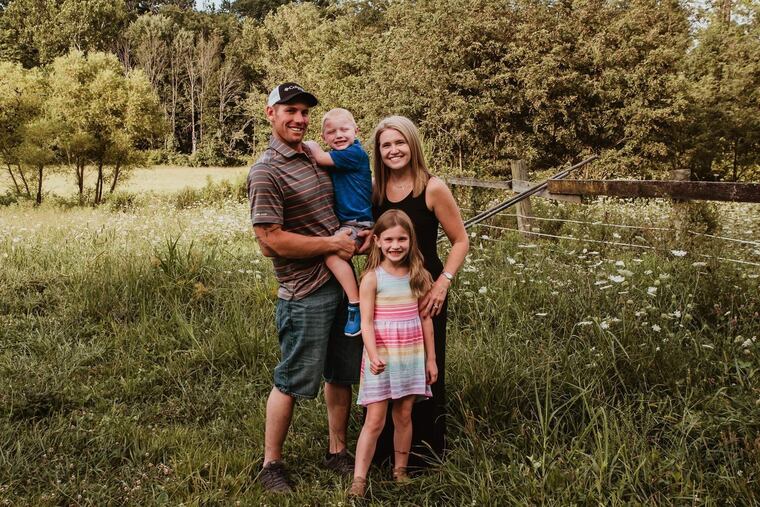Newborn Screenings are vitally important in Pa. | Opinion
My family and I are forever thankful for Pennsylvania’s Newborn Screening program.

Our extraordinary son, Johnny, made his entrance into this world on April 14, 2015. He was 7 pounds, 5 ounces of red-headed cuteness. That day our daughter, Faye, became a big sister and showered Johnny with big sister love and asked questions about what it would be like to have a baby brother.
Being a mom is amazing and I loved every second of getting to know Johnny in the days after he was born. It was a little overwhelming trying to figure out how to now be a mom of two, but my husband and I were so excited to get home and begin living life as a family of four.
What we didn’t know during those first few days of Johnny’s life, was that just four days later we would receive news from our pediatrician that turned our world upside down.
The day before we were supposed to take Johnny home from the hospital, the nurses performed a series of routine tests on him, including the heel stick blood spot test called Newborn Screening. Newborn Screening is a universal public health program in all 50 states that tests for a wide variety of rare genetic and metabolic diseases, as well as heart disease and hearing deficits and conditions babies can be born with, including some that are life threatening.
Identifying these conditions so soon after birth is essential for successfully treating newborns, and the early tests give doctors a head start on helping babies live their lives.
I know this first-hand. Newborn Screening saved my son’s life.
Johnny’s Newborn Screening test came back positive for two rare, genetic diseases. He has Maple Syrup Urine Disease (MSUD), which affects approximately 1 in 185,000 babies born in the United States. It is in an inborn error of metabolism where the body cannot break down an amino acid called leucine, and if not caught shortly after birth, is deadly. The good news is that Newborn Screening for MSUD saves lives, and the disease can be managed with a strict diet low in protein and supplemented with medical foods and formula specifically made for those with the disease. And for the rest of his life, Johnny will have to be monitored for leucine through frequent blood draws.
Johnny also has Cystic Fibrosis (CF), and is the only person in the world to have both these diseases simultaneously. CF is a progressive, genetic disease that causes the mucus in the body to be thick leading to persistent lung infections, malabsorption, and other issues in the body. CF affects approximately 1 in 3,500 people. CF is managed by performing daily nebulized treatments and chest percussion therapy, taking enzymes with all food, staying active and other medications necessary for the disease.
Despite the challenges we have faced as a family, and in the face of Johnny’s bravery through ongoing testing and treatment, today Johnny is a thriving, energetic, resilient, and sometimes naughty 4-year-old boy. He loves trucks, dinosaurs, playing soccer and baseball, swimming, fishing, and being a “normal” kid. He is in child care, where he is able to be a fully included, “typical” kid with his peers who see him simply as Johnny. And he will begin kindergarten next year, just like other kids his age.
Johnny is only able to do all this because Newborn Screening saved his life. He will also be able (if he chooses to) play sports, go to prom, go to college, have a job and, one day, have a family of his own because of Newborn Screening. My family and I are forever thankful for Pennsylvania’s Newborn Screening program. Everyday across the Commonwealth it gives kids like Johnny the chance to grow up.
Ashley Bricker is a wife and mom of two, who lives in Harrisburg. She works as technical training designer in early intervention for the state of Pennsylvania.